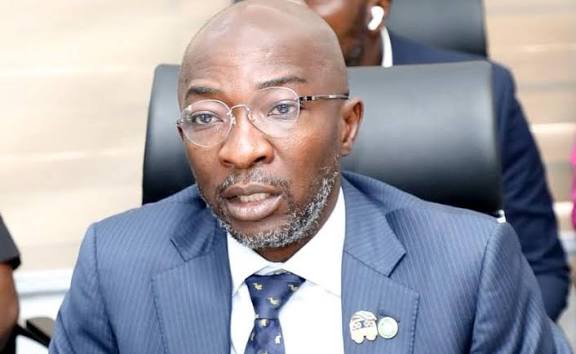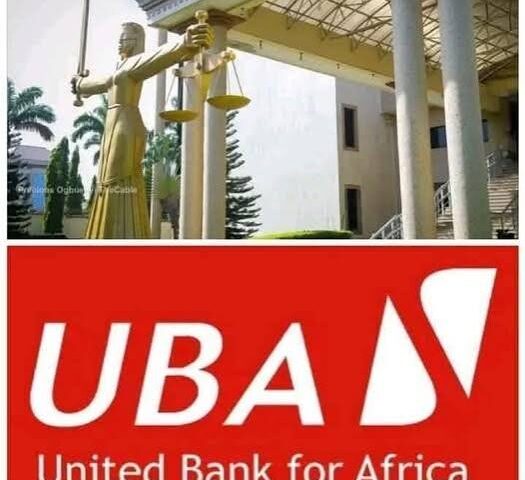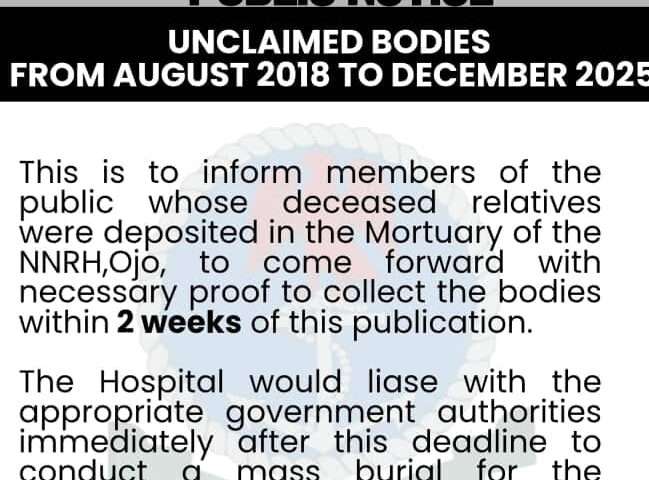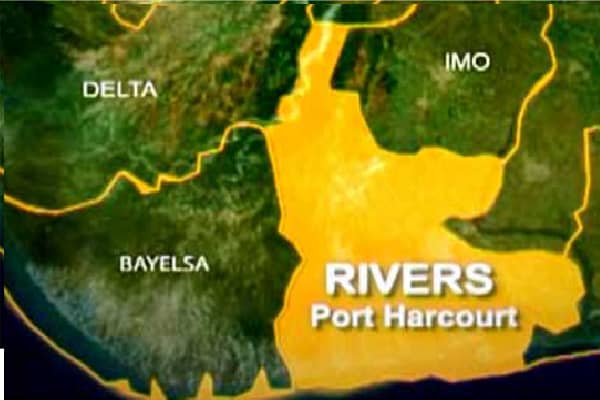
We convey to Your Excellency the warm fraternal and New Year’s greetings of the leadership of the Nigeria Labour Congress.
We write to draw the attention of Your Excellency to the recent proposal by the Federal Government to increase the pump price of the Premium Motor Spirit (PMS) also known as petrol anytime from now.
It is the well-considered view of Nigerian workers as conveyed through the leadership of Organized Labour in Nigeria that the proposed hike if it goes through would induce and impose an unprecedented degree of hardship on Nigerian workers, their families and the generality of the populace. The net and multiplier effects of such socio-economic dislocation especially with regards to decent standard of living, productivity and national security are better imagined than experienced.
Nigerian workers understand that government pays out significant amount of money as so-called petrol subsidy. Nigerian workers also appreciate the fact that the monies spent on the so-called petrol subsidy would be totally unnecessary if government is alive to its responsibilities of proper management of critical national assets especially our local refineries. It is the mismanagement of our four public oil refineries over the years by successive governments that have opened the floodgates of mass importation of refined petroleum products and consequently unfurled incessant increases in the prices of refined petroleum products in Nigeria. The fact is very clear – there is no way a country can control the price of what it does not produce. For a critical national security product like petrol and other refined petroleum derivatives, the situation is akin to handing over our national sovereignty to other climes. There is no better description of neo-colonialism and toxic neo-liberalism than this.
Nigerian workers believe that the scourge of incessant hike in the pump price of petrol is self-inflicted and therefore totally unacceptable for the following reasons:
1. Failure to Maintain Nigeria’s Public Refineries and Build New Ones
There is no gainsaying the fact that the perennial increase of the pump price of petrol and other refined petroleum products by government is actually a transfer of government failure and inability to effectively govern to the poor masses of our country. Central to this is the failure of government to manage Nigeria’s four oil refineries and inability to build new ones. It is tragic and shameful that Nigeria is about the only OPEC country that cannot refine her own crude oil.
Over the years, government has invested billions of tax payer’s money into overhauling our national refineries with no commensurate results. Between 2012 and now, about $9.5 billion has been spent on Turn Around Maintenance (TAM), Greenfield Refinery Projects and even public investments in private refineries, yet Nigeria still imports almost 100% of its refined petroleum products needs.
Nigerian workers believe that there is no reason our oil refineries should not be working at full installed capacity. The predatory argument that our refineries are too old for maintenance falls flat in the face. Evidence from around the world shows that refineries that are much older than Nigerian refineries are not only still working at their installed capacity but some of them have been upgraded over the years to current capacity nearly 2000% of their initial installed capacity.
An example is the Mina Al-Ahmadi Refinery in Kuwait which was built in 1949 with an initial capacity of 25,000 bpd but has been scaled up to currently process 466,000 bpd. Digboi Refinery in Upper Assam India is reputed to be the oldest operating refinery in the world. The Digboi Refinery was commissioned on 11th December 1901 with an installed capacity of 0.5 million bpd but has over the years been up-scaled to 0.65 million bpd. The connecting dot between the two refineries is that both are in developing countries with similar colonial antecedents like Nigeria.
2. Institutionalization of Importation Price Model as the Template for Price Determination in Nigeria’s Downstream Petroleum Sub-Sector
Consequent on the criminal neglect of our local refineries by successive governments, the government has institutionalized through the Petroleum Industry Act (PIA) recently signed into law an Importation Price Model. This move while it gives the commanding heights of our petroleum industry to private sector investors amounts to putting the final nail on genuine efforts to recover our capacity for local petroleum refining and for affordable pricing of petroleum products for Nigerians. The surrender of the downstream petroleum subsector to a few private investors is in violation of Sections 16 and 17 of Chapter 2 of Nigeria’s 1999 Constitution.
The challenge with Importation Price Model for refined petroleum products is that apart from being a clog in the wheel of industrialization and self-actualization, it also constitutes a grave national security threat. Crude oil and its derivatives just like other strategic national assets have precipitated international wars as countries are very keen to protect their petroleum industry as it is a key that opens multiple doors of industrial, economic and social development. This is the reason, virtually all the OPEC countries retain national oil corporations which oversee their hydrocarbons assets. We are amiss why the Nigerian governments chose to outsource our God-given hydrocarbon resource to a few individuals and foreign interests.
The same logic applies to the encouragement of private refineries at the detriment of public refineries. While Nigerian workers welcome the investment by the Nigerian private sector in the building of new refineries, we are also cautious to note that the overarching goal of private investment is profit maximization. Given the massive size of investments in private refineries in Nigeria, there are well-founded fears that the absence of optimally performing public refineries would eliminate competition and open the doors for monopolies and cartels and at a debilitating expense for the ordinary Nigerian. Government has a duty to ensure that this does not happen.
Currently, under the Importation Price Model for refined petroleum products, Nigerians are being forced to pay for all manner of acquired and transferred costs. These costs include the profit margin of foreign oil refineries, taxes paid by foreign oil companies, international shipping and logistics costs, product handling costs at the ports, demurrage charges, and import duties on imported petroleum products. Ultimately, all these costs are transferred to the end consumer even as government pays a fraction of this cost as the so-called petrol subsidy. Apart from inflicting very harsh financial blows on the pocket of ordinary Nigerians, the retention of the Importation Price Model also fleeces the government of scarce hard-earned revenue.
All these price distortions and inflation acquired in the process of mass importation of petrol, including the corollary implication of mass export of potential jobs and mass import of poverty, would be automatically eliminated once our local refineries are made to work at full installed capacity and we revert from the suicidal Importation Price Model to a more realistic, humane and sustainable Local Production Price Template. The other advantages of the local refining include the creation of mass decent jobs both directly and indirectly from new investments by both government and the private sector in the downstream petroleum industry.
The Local Production Price Model which drives industrialization for self-actualization would also secure our petroleum industry from the volatilities and sometimes conspiracy prevalent in the global commodities market. We believe that the present scourge of insecurity in different states in Nigeria is primarily fallout of mass unemployment and poverty. This ugly narrative can change if we strategically use our mineral assets to create decent jobs and prosperity for our people.
3. Incongruities in the Petroleum Sector/Broader Governance Challenges
Organized Labour is concerned that the crisis in Nigeria’s downstream petroleum sector is further aggravated by the persisting tumult in the upstream subsector and broader governance challenges. It was recently reported that almost 200 million barrels of crude oil were lost in Nigeria’s petroleum industry in 2021. This was due to crude oil theft, smuggling, ageing infrastructure, poor long-term investment, poor security of our inland waterway, and challenges arising from conflicts with oil bearing communities and communities that host oil facilities. This is very unfortunate. Even more disturbing is the fact that just like the failed TAMs, no major culprit has been arrested and successfully prosecuted. This does not signify commitment on the part of government that savings from the removal of oil subsidies would be invested in developing the economy and improving the lot of the ordinary Nigerian.
Furthermore, over the years, there has been very weak and unconvincing commitment and investment by government in developing social and physical infrastructure that can serve as a buffer to the Nigerian people if government withdraws subsidy on petrol. Our public schools and hospitals are still in shambles forcing many Nigerians to resort to high fee charging private schools and hospitals. Our public power supply is still tottering despite recent privatization initiatives forcing Nigerians and businesses to source more than 50% of their electricity needs from generators in addition to paying high electricity tariff and estimated billings. The same is the situation with public transportation in Nigeria as there is hardly any metro system in our urban centers. Nigerians also deal with the challenge of very sparse railways connections and well-developed inland waterways to our rural places.
There is a lot of hot air on the part of government that the savings from the removal of petrol subsidy would be ploughed into improving social services and ensuring decent wages for Nigerian workers. Unfortunately, Nigerian workers are far from being convinced. We are particularly bothered with the persisting refusal of many State Governments to implement the national minimum wage and pension which is an Act of Parliament and a binding law with implications for criminal liability. If many state governments are unwilling to comply with a law that demands they pay a national minimum wage and pension to workers and retirees, how would the Nigerian people expect such state governments to use savings from the withdrawal of the so-called petrol subsidy to deliver on genuine dividends of development which though is a constitutional mandate but as of now is non-justiciable?
The recent declaration by Nigeria’s Minister of Finance that government was contemplating paying poor and vulnerable Nigerians transport allowance to mitigate the impact of hike in the price of petrol shows that government is aware that the proposed price increase would precipitate hyper-inflation and induce widespread hardship. Even the amount to be paid as transport subsidy outweighs the amount being currently expended as petrol subsidy. This shows that there is no smart way of avoiding doing the right thing. Government should just fix our local refineries.
4. An Agreement Is An Agreement!
Nigerian workers through their elected representatives signed an agreement with the Federal Government on 28th September 2020 to freeze further increases in the pump price of petrol. The Memorandum of Understanding with government also agreed to set up a Technical Committee to undertake a review of the state of local refineries in Nigeria. The mandate of the Technical Committee which comprises of relevant officers of government and affiliate unions in the Petroleum Industry was also to monitor and track the fulfilment of government’s promises and efforts in the direction of taking necessary actions to revamp our public petroleum refineries.
Unfortunately, after a few weeks of interaction with government on this critical national matter, government suddenly adjourned further discussions sine die. The situation has remained the same for nearly two years now as government treats inquiries and promptings by Organized Labour with levity, disdain and contempt.
This is why Nigerian workers were completely taken aback by the sudden proposal by government to increase the pump price of petrol. Coincidentally and curiously, the declaration by the Nigerian government to increase the pump price of petrol came a few days after the same demand was made by the World Bank and the International Monetary Fund. Clearly, the Nigerian government is more interested in listening to foreign vested interests than engaging with the Nigerian people.
Our Demands
1. The Federal Government should announce the withdrawal of its plans to increase the pump price of petrol;
2. The Federal Government should re-engage Organized Labour in Nigeria in discussions in order to find mutually acceptable solutions to the current quagmire in Nigeria’s downstream petroleum sub-sector;
3. The Federal government should demonstrate seriousness and commitment to overhauling our local refineries as a lasting panacea to mass importation of refined petroleum products, Importation Pricing Model, and a host of lost opportunities, official corruption and self-inflicted dislocations occasioned by mass importation of refined petroleum products into Nigeria; and
4. Governments at all levels in Nigeria should take immediate steps to improve governance and public accountability in order to regain the confidence of Nigerians that the cardinal constitutional mandate of guaranteeing the welfare and security of Nigerians has not been traded off.
In Conclusion
Organized Labour in Nigeria as a responsible social partner is willing and ready to work with government to find enduring solutions to the crisis in Nigeria’s downstream petroleum sector and other areas of challenge in governance. It would be a great relief for Organized Labour if government meets us halfway in this regard.
The current protest holding nationwide today, 27th January 2022, is only geared at alerting government on the sufferings that Nigerians are going through and the additional insufferable trauma that Nigerians would be subjected to if the government goes ahead with the hike in the price of refined petroleum products.
From our foregoing submissions, there is no reason Nigeria like other nations of the world should not utilize the comparative advantage of crude oil which is our domineering foreign exchange earner as a strategic national asset for improving the lots of the Nigerian workers and the ordinary citizens of our great country.
We plead that Your Excellency should use your position as a member of the National Economic Council to convey our foregoing persuasions and demands to the Federal Government. We also warn that Nigerian workers would have no other choice than to down tools once the government goes ahead to force another round of petrol price increment on Nigerians. Nigerians have suffered enough. Enough is Enough!
While we look forward to your kind and immediate intervention, please accept the assurances of our highest esteem.
Comrade Ayuba Wabba, mni,President.
Comrade, Emanuel Ugboaja, mni, General Secretary




















